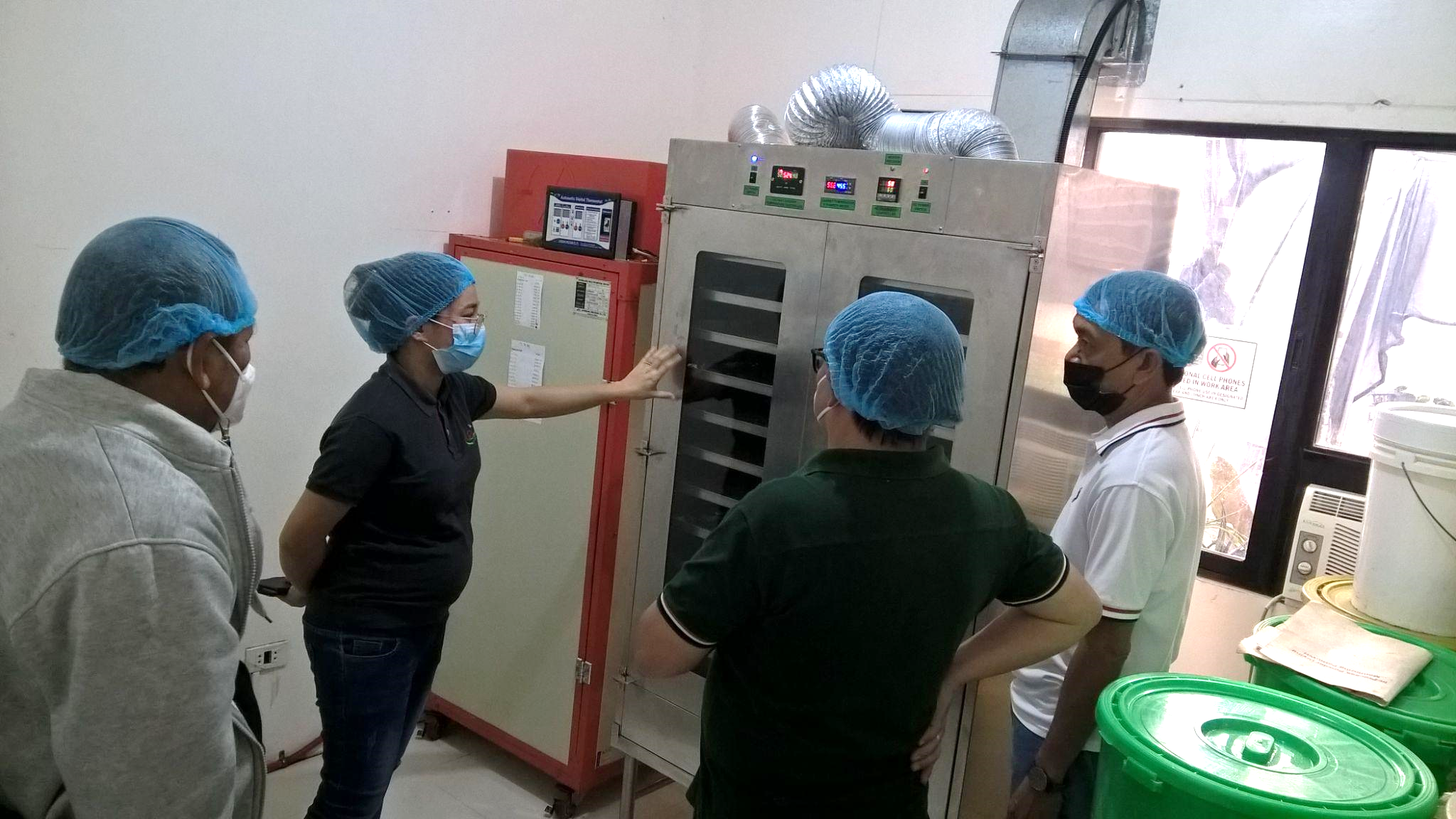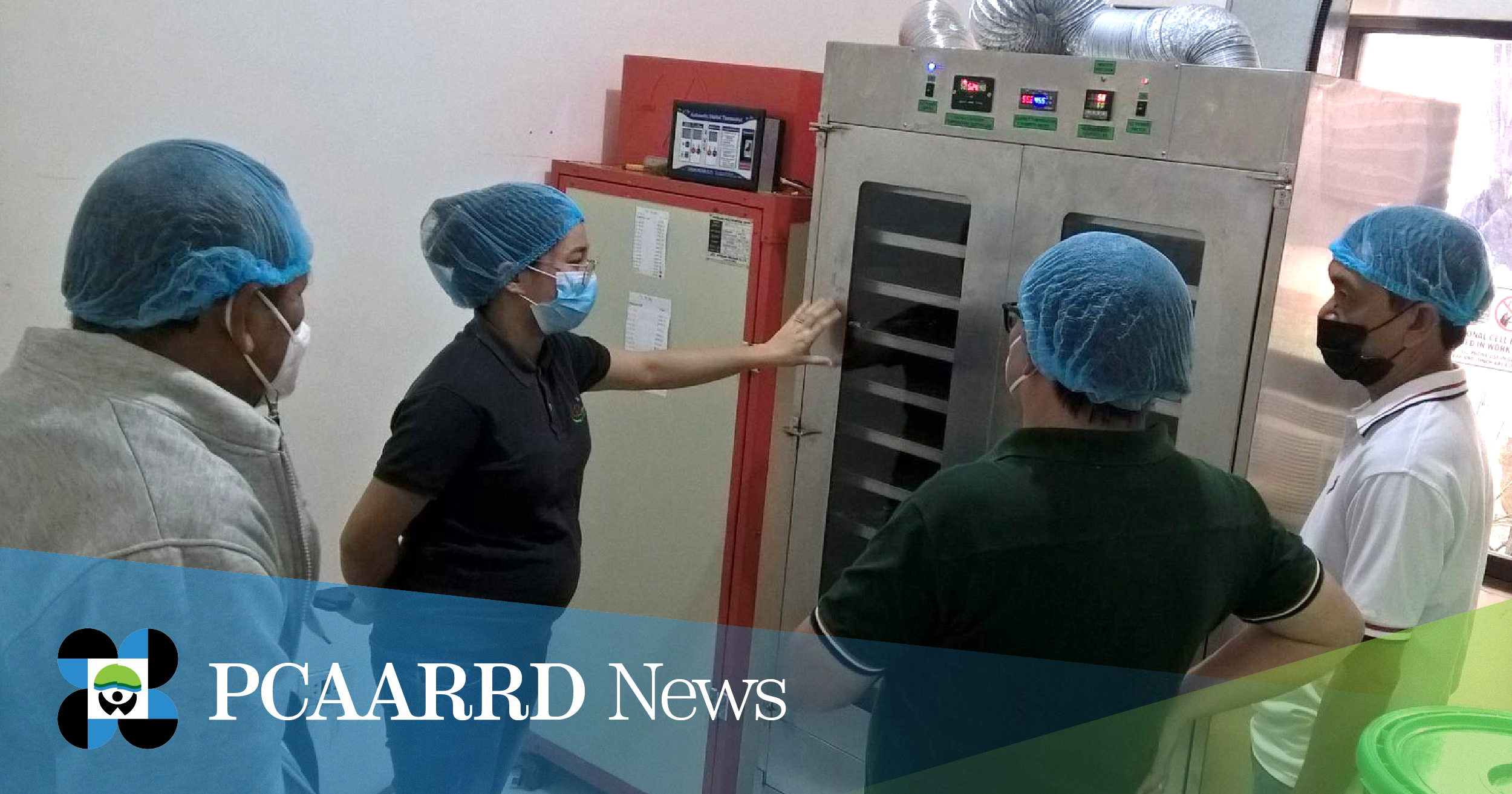By harnessing solar energy in the dehydration process, the Iloilo Science and Technology University (ISAT U) addresses the urgent need for sustainable solutions to mitigate postharvest losses, promote energy efficiency, and incorporate value-added processing.

Women volunteers at Brgy. Dabong, Janiuay, Iloilo uses the dehydrator machine for banana peels and crackers. (Image credit: ARMRD, DOST-PCAARRD)
ISAT U’s lead researcher, Dr. Renerio S. Mucas, developed the hybrid dehydrator machine and has proven its efficiency in drying plant materials for herbal tea production. Success of the dehydrator machine and the demand from small and medium food processing enterprises (SMEs) have led to the pilot-testing study on other agricultural products. This initiative is funded by the Philippine Council for Agriculture, Aquatic and Natural Resources Research and Development of the Department of Science and Technology (DOST-PCAARRD).
Banana peels are dried and processed into flour using the hybrid dehydrator machine to help reduce food waste. It also has health benefits, creating a positive impact from environmental and nutritional perspective.

DOST-PCAARRD’s Deputy Executive Director for R&D Juanito T. Batalon, Director Noel A. Catibog, and Dr. Jessie C. Elauria in a project monitoring visit at Al Di Foods Corp, where dehydrator machine is being used for drying ginger and turmeric. (Image credit: ARMRD, DOST-PCAARRD)
Women volunteers at Brgy. Dabong, Janiuay, Iloilo have been using the dehydrator machine to produce flour from the ground dehydrated banana peels, which are also used for making ‘polvoron,’ ‘hopia,’ and bread.
Further, the dehydrator machine has also been tested on ginger and turmeric to produce herbal teas. Al Di Foods, a food processing enterprise in La Paz, Iloilo City, has been tapped as a partner industry to address their production costs for drying the said raw materials.
The San Dionisio Fish Vendor Association, based in a coastal area in Iloilo, has partnered with ISAT U in testing the dehydrator machine for fish ‘lamayo.’
Traditional drying methods are labor-intensive and time-consuming. Through the dehydrator machine, the drying process can be hastened while preserving the product’s nutritional value. It is programmable and has a function that can regulate the temperature, humidity levels, and airflow. Moreover, using solar energy for its operation can help reduce reliance on fossil fuels.
To date, the technology has generated a substantial amount of income through technology commercialization. It has garnered citations and awards from DOST, the Intellectual Property Office of the Philippines (IPOPHL), and the Regional Development Council (RDC) in Western Visayas.

